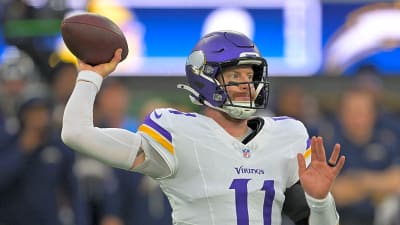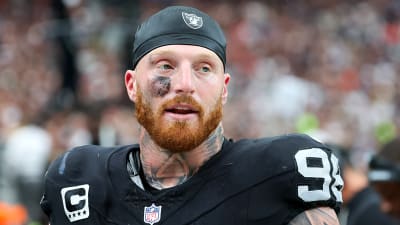
Senator says it's 'hard to root' for NCAA athletes who get paid
NCAA student-athletes are cashing in like never before, but not everyone seems to be a fan.
The United States Senate met Tuesday to discuss the name, image and likeness deals that have proven so lucrative for sports stars, but one senator seems to wish it wasn't the case.
Sen. Joe Manchin of West Virginia revealed his feelings when he "said the quiet part out loud," as USA Today columnist Dan Wolken noted.
"It’s hard to root for the kids when they’re multi-millionaires as freshmen and sophomores," Manchin said.
Manchin says the quiet part out loud: “It’s hard to root for the kids when they’re multi millionaires as freshmen and sophomores.”
— Dan Wolken (@DanWolken) October 17, 2023
If Manchin, a powerful figure in Washington, D.C., is against legislation allowing endorsement deals for college athletes, it could be a sign of trouble ahead as officials work to regulate a market that has resulted in multi-million-dollar valuations for some athletes.
Without that legislation, recruiting and endorsements will remain the "wild, wild west" where stars are essentially being paid to play for certain schools, as Penn State head coach James Franklin described it.
That's very much the antithesis of the NCAA's wish, as the organization has long argued against such payments and harshly punished schools found to violate their rules against it.
However, Jack Swarbrick, the athletic director for Notre Dame who was a witness in the Senate committee hearing, proposed what he described as a "fairly radical notion": have athletes remain students of the school, but allow them to collectively bargain as unionized employees do.
"We don’t have a mechanism to [collectively bargain] without them becoming employees," Swarbrick said, as reported by Yahoo Sports' Ross Dellenger. "It would require a new mechanism that would recognize the rights of student-athletes to negotiate for the terms and conditions of their participation as athletes without being employees. I think it’s worth considering.”
Swarbrick's proposal sounds like what the Northwestern football team proposed in 2014 when they tried to unionize, though their union was struck down the next year after the National Labor Relations Board voted unanimously that the athletes weren't employees.
To achieve a different outcome would require legislation, something that's often difficult in a fiercely divided D.C. But if Swarbrick is right, the NCAA could be one law away from taming the "wild, wild west" while continuing to allow student-athletes to be compensated for their name, image and likeness.
More must-reads:
- Clemson HC Dabo Swinney blasts 'bandwagon' fans: 'It’s just such a terrible mindset'
- NFL Draft watch: Michael Penix Jr. on the rise, Brock Bowers’ stock takes a hit
- The 'Active NFL receptions leaders' quiz
Breaking News
Trending News
Customize Your Newsletter
 +
+
Get the latest news and rumors, customized to your favorite sports and teams. Emailed daily. Always free!








